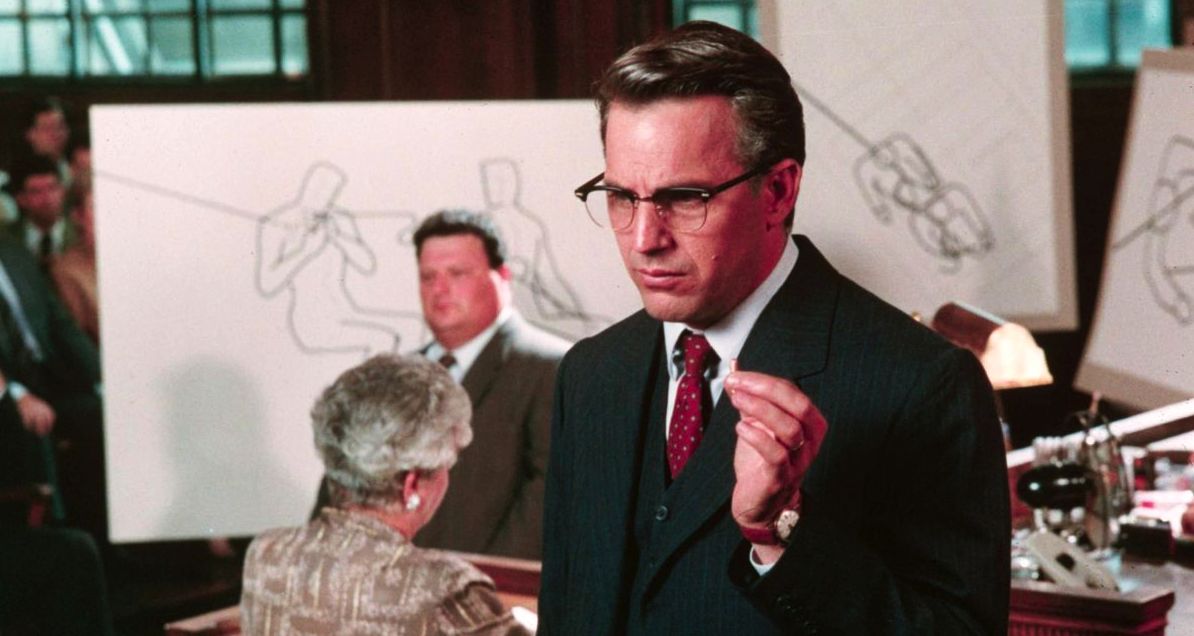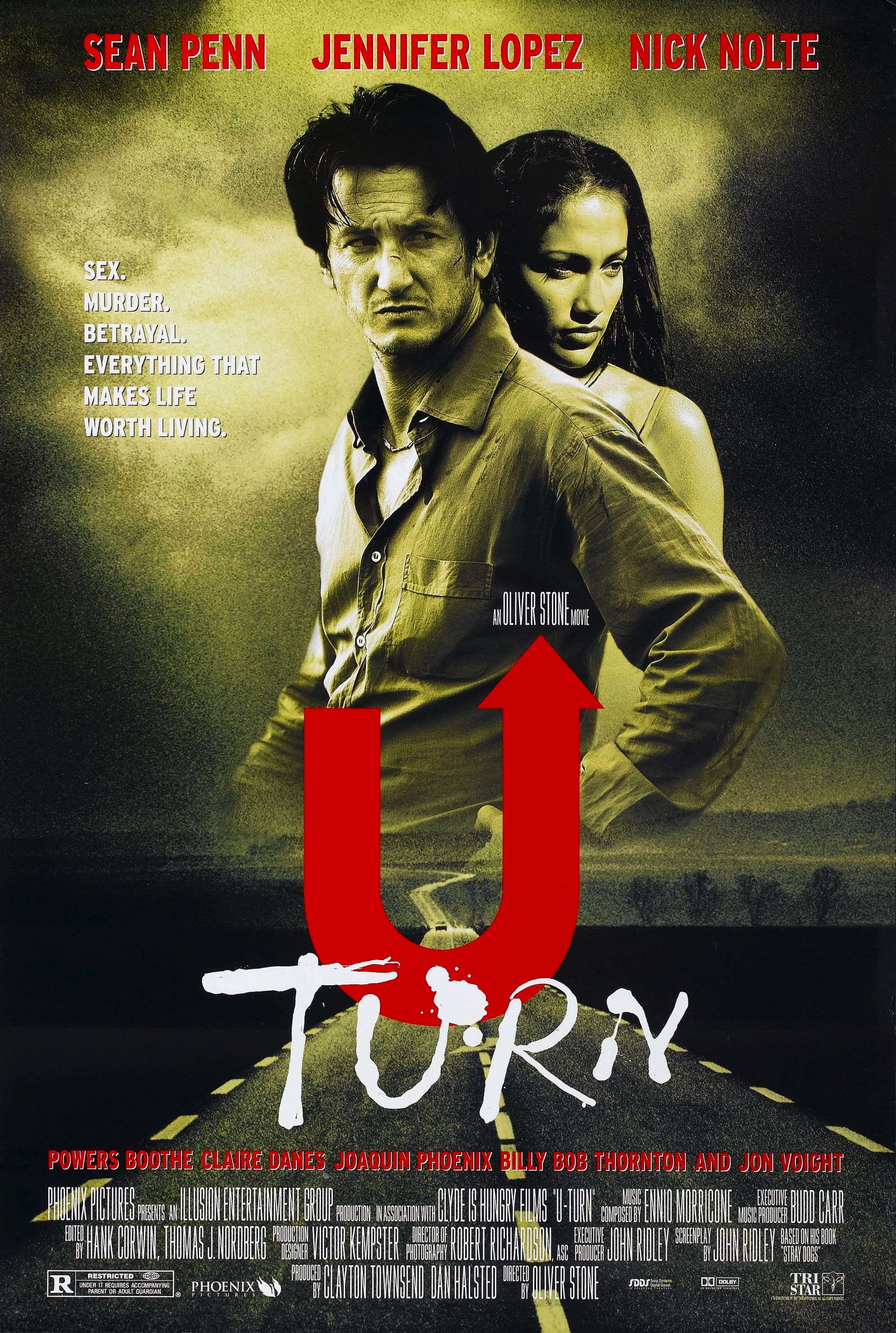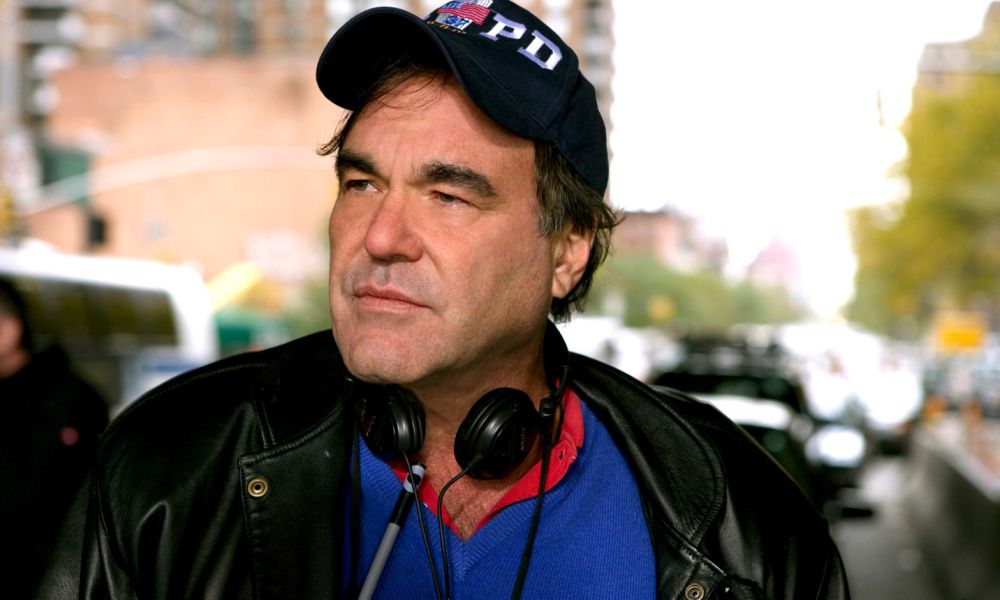"Described by one critic as his generation's Samuel Fuller, this controversial filmmaker blends a flamboyant, in-your-face style with passionate, issue-oriented storytelling, often about people caught up in the turbulent 1960s." - Leonard Maltin's Movie Encyclopedia, 1995
Oliver Stone
Director / Screenwriter / Producer
(1946- ) Born September 15, New York City, New York, USA
Top 250 Directors
(1946- ) Born September 15, New York City, New York, USA
Top 250 Directors
Key Production Countries: USA, France
Key Genres: Drama, Biopic, Political Drama, Crime Drama, Political Thriller, Anti-War Film, Ensemble Film, War, Crime
Key Collaborators: Robert Richardson (Cinematographer), A. Kitman Ho (Producer), Clayton Townsend (Producer), Victor Kempster (Production Designer), Bruno Rubeo (Production Designer), Joe Hutshing (Editor), David Brenner (Editor), Thomas J. Nordberg (Editor), Hank Corwin (Editor), Claire Simpson (Editor), James Woods (Leading Character Actor), John Williams (Composer)
Key Genres: Drama, Biopic, Political Drama, Crime Drama, Political Thriller, Anti-War Film, Ensemble Film, War, Crime
Key Collaborators: Robert Richardson (Cinematographer), A. Kitman Ho (Producer), Clayton Townsend (Producer), Victor Kempster (Production Designer), Bruno Rubeo (Production Designer), Joe Hutshing (Editor), David Brenner (Editor), Thomas J. Nordberg (Editor), Hank Corwin (Editor), Claire Simpson (Editor), James Woods (Leading Character Actor), John Williams (Composer)
"Stone carries himself in the rather breathless, tireless way of someone who believes he contains multitudes. It is easy to scorn him, for he can be very bad and foolish. Still, he is an example of the confidence that believes it can turn complex ideas and problems into crowd-pleasing movies. There is little point in having a popular American film business without that attempt. Of course, Otto Preminger did it all thirty years ago with more taste and intelligence. But Stone's faults are part of his energy, and in Salvador and Platoon that force achieves searing popular drama." - David Thomson (The New Biographical Dictionary of Film, 2002)
"He repeatedly tackles Big Issues - war, the corrupting influence of greed and power in the worlds of finance and politics, the demise of 60s idealism - but a fondness for simplistically polarised characters and attitudes, his equation of serious, in-depth analysis with overlong running-times, and his cynical tendency to see conspiracy, cover-up and corruption everywhere make for turgid, unconvincing narratives." - Geoff Andrew (The Director's Vision, 1999)

JFK (1991)
"Stone has used his power in the American film industry to expose corruption and injustice, as well as to look at flawed figureheads in several different walks of life. He has also looked at the appalling side effects, both physical and mental of war... His strong and confrontational films, at their peak of popularity in the late 1980s and early 1990s, are customarily based on his own screenplays." - David Quinlan (Quinlan's Illustrated Guide to Film Directors, 1999)
"Anyone attempting with any degree of success, both artistic and commercial, to make overtly political movies that sustain a left-wing position within the Hollywood cinema of the 1980s and 1990s deserves at least our respectful attention. In fact, Oliver Stone's work dramatizes, in a particularly extreme and urgent form, the quandary of the American left-wing intellectual." - Robin Wood & R. Barton Palmer (The St. James Film Directors Encyclopedia, 1998)
"A controversial figure who likes it that way, Oliver Stone studied film under Martin Scorsese and famously learned about life in Vietnam. Combative in everything he touches, Stone aims for hot issues, and approaches them from an overtly leftist perspective." - Ronald Bergan (Film - Eyewitness Companions, 2006)
"His often controversial work frequently examines events from recent US history, particularly the Vietnam War; the violence of war, and of society in general, is a recurring theme in his work." - Chambers Film Factfinder, 2006
"With his emphasis on power, greed and the destructive capacity of the male when society's harness is temporarily lifted by war, great wealth or political power, Stone fits neatly into the Ernest Hemingway, Norman Mailer, Charles Bukowski line of self-abusing iconoclasts. Wall Street (1987), Born on the Fourth of July (1989) and JFK (1991) were all good in their way, but Stone excels at more out-of-the-way material, such as his underrated U-Turn (1997), in which an increasingly disoriented Sean Penn backs through the door marked film noir and emerges somewhere close to hell." - Mario Reading (The Movie Companion, 2006)
"For the auteurist, Stone's rejection(s) of legitimized history reflects his Nietzchean commitment to what he terms 'Dionysian politics'; this characteristically dualistic philosophy privileges subjective visceral and emotional truths over the intellectual/rational, forcing 'the pure wash of emotion over the mind to let you see the inner myth, the spirit of the thing. Then, when the cold light of reason hits you as you walk out of the theatre, the sense of truth will remain lodged beyond reason in the depths of your being'." - Martin Fradley (Fifty Contemporary Filmmakers, 2002)
"I have the right to interpretation as a dramatist. I research. It's my responsibility to find the research. It's my responsibility to digest it and do the best that I can with it. But at a certain point that responsibility will become an interpretation." - Oliver Stone
Selected Filmography
{{row.titlelong}}
GF Greatest Films ranking (★ Top 1000 ● Top 2500)
21C 21st Century ranking (☆ Top 1000)
T TSPDT N 1,000 Noir Films S Martin Scorsese
21C 21st Century ranking (☆ Top 1000)
T TSPDT N 1,000 Noir Films S Martin Scorsese
Oliver Stone / Favourite Films
Avatar (2009) James Cameron, The Best Years of Our Lives (1946) William Wyler, Citizen Kane (1941) Orson Welles, Dr. Strangelove or: How I Learned to Stop Worrying and Love the Bomb (1964) Stanley Kubrick, The Godfather (1972) Francis Ford Coppola, Lawrence of Arabia (1962) David Lean, Mutiny on the Bounty (1935) Frank Lloyd, 1900 (1976) Bernardo Bertolucci, On the Waterfront (1954) Elia Kazan, Raging Bull (1980) Martin Scorsese.
Source: Sight & Sound (2022)
Avatar (2009) James Cameron, The Best Years of Our Lives (1946) William Wyler, Citizen Kane (1941) Orson Welles, Dr. Strangelove or: How I Learned to Stop Worrying and Love the Bomb (1964) Stanley Kubrick, The Godfather (1972) Francis Ford Coppola, Lawrence of Arabia (1962) David Lean, Mutiny on the Bounty (1935) Frank Lloyd, 1900 (1976) Bernardo Bertolucci, On the Waterfront (1954) Elia Kazan, Raging Bull (1980) Martin Scorsese.
Source: Sight & Sound (2022)
Oliver Stone / Fan Club
Gary Crowdus, Kevin Smith, Gavin Smith, Roger Ebert, Alejandro Amenábar, Peter Kosminsky, Matt Zoller Seitz, Petr Zelenka, Chuck Rudolph, Walter Frith, Rory Dean, Alan Bacchus.
Gary Crowdus, Kevin Smith, Gavin Smith, Roger Ebert, Alejandro Amenábar, Peter Kosminsky, Matt Zoller Seitz, Petr Zelenka, Chuck Rudolph, Walter Frith, Rory Dean, Alan Bacchus.
"Fan Club"
These film critics/filmmakers have, on multiple occasions, selected this director’s work within film ballots/lists that they have submitted.
These film critics/filmmakers have, on multiple occasions, selected this director’s work within film ballots/lists that they have submitted.


